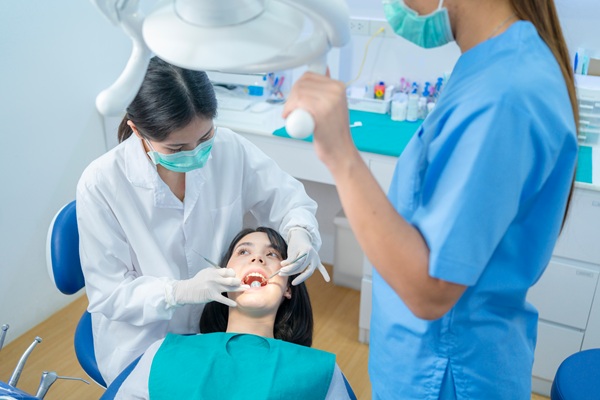What To Expect During and After a Root Canal

Severe tooth decay or damage is often treatable through root canal therapy. Despite its reputation, undergoing a root canal is similar to filling a cavity and is generally no more uncomfortable. Learning about the procedure and the recovery process can help alleviate concerns, helping patients see the benefits of preserving their smile with a root canal.
What is a root canal?
A general dentist recommends a root canal when the inner pulp of a tooth becomes inflamed or infected. Common causes of these conditions include deep decay, cracks, or injury. If left untreated, the inflammation can worsen, or the infection can spread to surrounding tissues. Both can result in further discomfort and potential complications. However, a root canal allows the dental provider to remove the source of the problem and protect the integrity of the tooth.
What to expect during a root canal
A root canal has several steps. The first few involve preparing the tooth and ensuring comfort throughout the procedure. A general dentist will likely recommend local anesthesia to numb the area and ensure the rest of the procedure is painless.
The next step is to drill into the tooth to access the problematic pulp tissue. The dental provider will then carefully remove the infected or inflamed pulp, eliminating bacteria and debris. Once the inside of the tooth is cleaned and shaped, they will fill and seal the area with a rubber-like material called gutta-percha. This seal protects the tooth from further damage and maintains its structural integrity. Lastly, a temporary filling or crown is placed to protect the tooth while a permanent restoration is prepared.
What to expect after root canal therapy
Root canals can be completed in a single appointment. Here is what to expect in the following days and weeks:
Recovery
Recovery from a root canal is typically quick, with most patients resuming normal activities within a day or two. Mild soreness or sensitivity is common but generally subsides within a few days. Over-the-counter pain relievers and any aftercare recommendations from the dentist help manage these temporary effects.
Maintaining good oral hygiene is also an essential part of the recovery process. Brushing, flossing, and rinsing with an appropriate mouthwash support healing and reduce the risk of complications. Make sure to avoid hard or sticky foods immediately after the procedure to protect the treated tooth and surrounding areas.
Follow-up care
A follow-up visit is often necessary to ensure that the tooth is healing properly and that the final restoration fits perfectly. The general dentist will examine the tooth and place the permanent crown or filling, which restores the tooth's function and appearance. This step completes the process, as well as allows the tooth to blend seamlessly with the rest of the smile.
Visiting the dentist every six months after a root canal promotes long-term oral health. These checkups provide an opportunity to monitor the treated tooth and address any potential issues before they become problematic. With proper care, a tooth restored through a root canal can last a lifetime.
Find out more about root canals
A root canal is a proactive step toward maintaining oral health and preventing complications. If you are experiencing any signs of severe tooth decay or infection, contact VidaDental: Kenia Cuevas, DDS for prompt treatment. We can evaluate the tooth to determine whether a root canal may be necessary.
Request an appointment here: https://www.vidadental.com or call VidaDental: Kenia Cuevas, DDS at (305) 230-4487 for an appointment in our Doral office.
Check out what others are saying about our dental services on Yelp: Root Canal in Doral, FL.
Related Posts
Root canal treatment is often the first line of defense for treating teeth with compromised pulp chambers. The pulp chamber is the innermost layer of a tooth, and it stores nerves, blood vessels, and connective tissues. The chamber is sealed off from the rest of the tooth to protect it against bacteria and other irritants…
Practicing preventive dentistry at home allows you to reap many benefits for your general health. Brushing and flossing every day is a basic way of keeping your mouth in good shape. Having healthy teeth and gums helps support your whole body’s health. If you want to find out why good everyday dental hygiene is important…
A preventive dentist can protect your mouth from different ailments. This dental care professional can perform treatments that can keep your teeth and gums healthy. Regular visits can ward off serious dental problems later on. Here are the details about visiting a preventive dentist for good oral health.The main goal of this field is to…
The role of preventative dentistry is to minimize the risk of future dental issues in patients. Read on to learn some tips that encourage the prevention of oral issues. If you have experienced and treated dental issues in the past, you will attest that it is better to prevent them from happening in the first…
